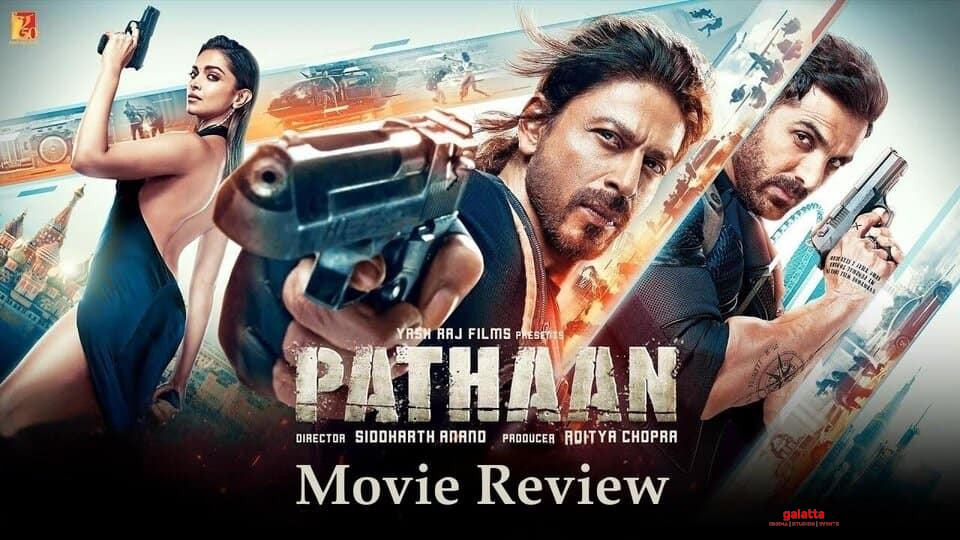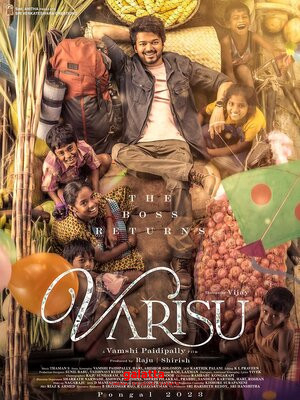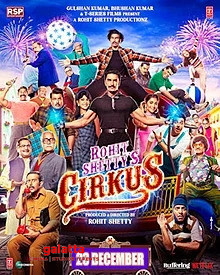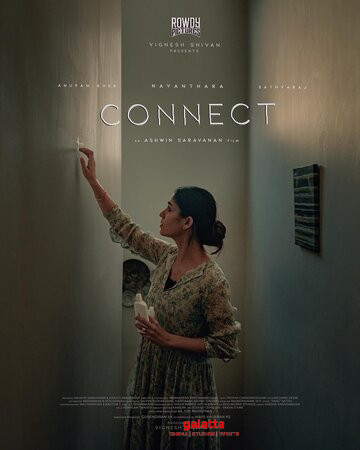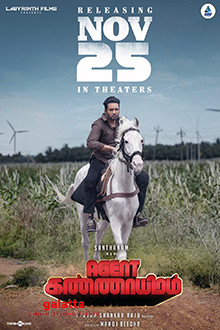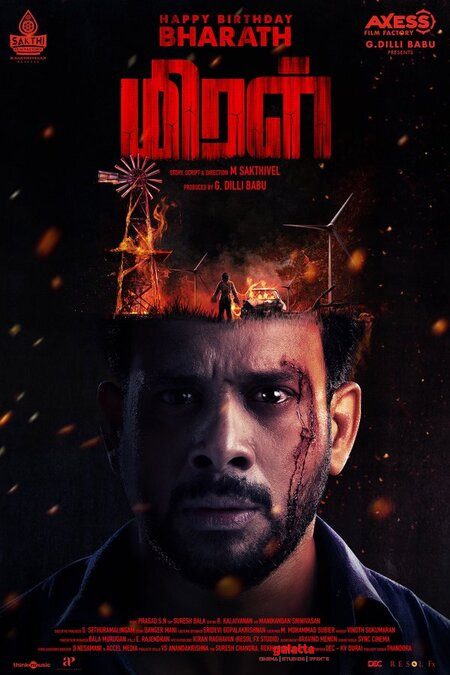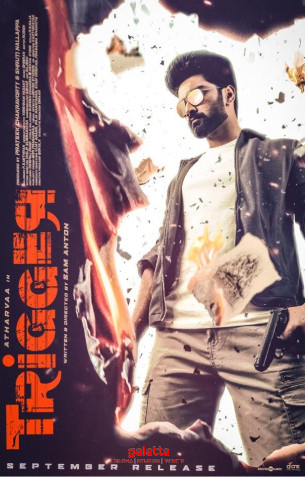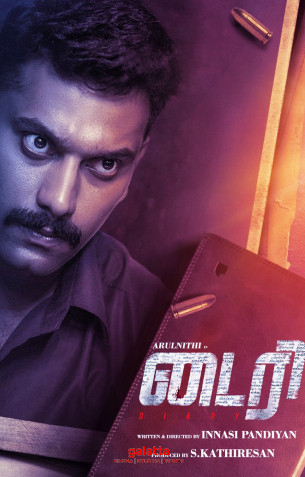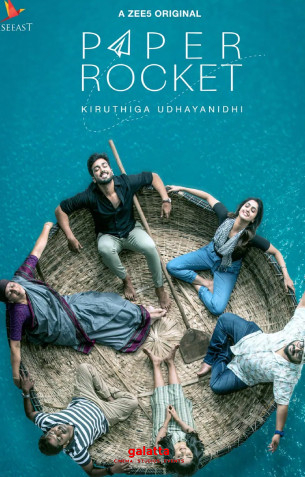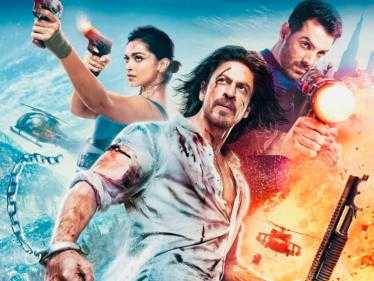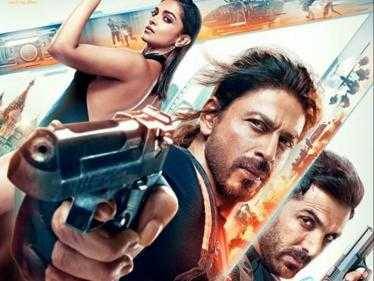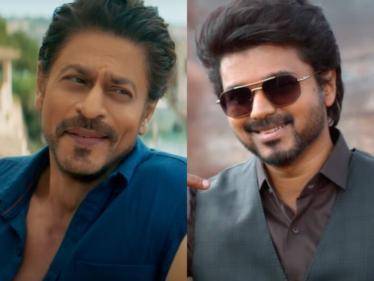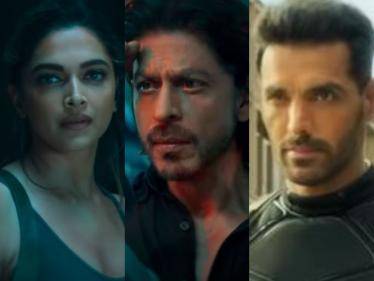Pathaan Movie Cast & Crew
It's probably too early to say this, but on the basis of War and now Pathaan, writer Shridhar Raghavan, dialogue-writer Abbas Tyrewala, and director Siddharth Anand have revitalised the Indian action movie. I use the word "Indian" deliberately, because the stunts are from Hollywood, but the heart that makes these "Yash Raj Spy Universe" films tick is as desi as desi can be. In the Dhoom franchise or in the Salman Khan-starring Tiger films, Yash Raj have been trying to marry our masala sensibilities to Bond/Mission-Impossible action spectacles, with middling results. War is where it all finally came together. Scratch the Hollywood-inspired action set pieces, and you had the emotional connect of a Muslim patriot attempting to atone for the sins of his father and thus fulfil the wishes of his mother.
Pathaan is all about the mother: Mother India. In a Manmohan Desai-esque masterstroke, the story is about a hero named Pathaan (Shah Rukh Khan) and a villain named Jim (John Abraham), and their representational mother is a Hindu named Nandini (Dimple Kapadia). Jim's villainy is created by the fact that his "father" abandoned him, the way the Amitabh Bachchan character's villainy in Shakti was created when his father abandoned him during a hostage negotiation. So there's a lot of Salim-Javed in here, too: like in Deewar, the mother faces one good son, and one son gone bad. I chuckled when a pissed-off Pakistani officer hears about Article 370 being annulled, and calls for war: "elaan-e-jung" is the term he uses. That's the name of an Anil Sharma masala hit from 1989. And that officer does speak like he is in an Anil Sharma movie. Sample line: Shaitan se dosti karne ka waqt aa gaya hai.
Pathaan is introduced in a superbly imagined and choreographed action sequence. Like in War, some of the visual effects are iffy: a vault with heavy-duty gears looks especially embarrassing. But the way these mega-scale stunts are conceived, shot and cleanly edited is brilliant. They are preposterous and campy in a Roger Moore-era James Bond way, and they are filled with seeti-worthy lines. In the Pathaan-intro action stretch, he tells a bad guy: "Ghungroo toot gaye… ab naach!" It's a thrill to hear such unabashedly desi dialogue construction in a film made today. Ashutosh Rana plays a version of M in the Bond movies, like he did in War. Look at what he says when he learns that a former operative is still alive: Kisi ke bhi maut pe bharosa nahin kar sakte! He says it wryly, but the line gets a big laugh. And look at how Pathaan accuses his boss of making Jim a monster: Aap ke ek faisle ne uski aankhon mein uska har gunaah maaf kar diya.
This is both a patriotic movie and a form of movie patriotism. It keeps the flag of a certain kind of homegrown storytelling flying high. And yet, despite all the cries of Jai Hind, there's no jingoism. Just look at the tune Jim whistles, when he walks towards Pathaan to kill him. It's "Ae mere watan ke logon…" There's no patriotic song that's more popular, but it's given a cool, ironic spin. There's homegrown myth, too. A contagious disease is nicknamed Raktbeej, after the asura whose every drop of spilt blood gave rise to multiple clones of him: he was the original super-spreader. And when we hear Nandini say "Pathaan ka 'vanvaas' ka time khatm hua," we are essentially seeing the conflation of a Muslim name with a term associated with the holiest epic of the Hindus.
The ideology behind Pathaan is another dash of home-ground masala. As an infant, he was abandoned in a cinema theatre, and he says he was raised by his nation: "Meri desh ne meri parvarish ki." He may carry the name Pathaan – but we never know what religion he belongs to. (The story behind the name is another effective reminder that humanity triumphs over religion and nationalism, and it contains another mother figure.) At best, you could call Pathaan an "adopted Muslim" – in other words, what matters is not who he worships but the fact that he is Indian. In contrast, Jim has broken away from his Indian identity. He says, "Jahaan main khada hoon, wahi mera desh, wahi meri duniya." And by the end, Pathaan – the Every-Indian – is given the task of holding together the broken spirits of people who fight for the country. The film compares its hero to the gold used in the Japanese art of kintsugi, to glue back broken china. It's a lovely metaphor.
The globe-trotting Pathaan – whose story is incited by the Kashmir issue – does not come together as elegantly as the globe-trotting War did. There are clunky bits in the character-exposition dumps. When Rubina's – that's the Deepika Padukone character – traumatic past explodes as a nightmare, those images are enough. We put together her backstory in our heads. There's no need for the lines that follow, telling us what we have just seen. The energy dips in the pre-interval Pathaan-Rubina sequences. I guess the idea was to give the audience a breather, but the will-they-won't-they romance angle doesn't heat up as it should, and this is the one part where the lines feel laboured. But hey, a film that shows a Pakistani as masala cinema's "good Muslim" and clad in saffron… not bad, huh!
Deepika plays Rubina as both a fashionista and a fighter. She's good, but the best female performer here is Dimple Kapadia. She really gets what her character is saying. She snaps when needed. The pauses in her line readings are perfectly timed. And her big scene in a hi-tech lab made me want to get up and applaud. This scene is really an "explanation scene": it's there because the audience needs to know what will happen if Jim pulls off his big idea. But the way it's written is a salute to soldiers, both men and especially women. You get to see how to say "fuck you!" to a terrorist without lifting a single gun. John Abraham is in fine form, too. In the midst of all the mayhem, he gets a beautiful bit of existentialism where he muses about the cost of war, which he calls "kafan ka never-ending supply". After a pause, he adds, "Bas laashon ke naam badalte rehte hain." Oof! Gooseflesh!
But yes, the film belongs to Shah Rukh Khan. Is it a makeover? He's already done big action stretches in Fan, though not to this level. But more than the carnage, what's fascinating is the cruelty. Shah Rukh is the rare "romantic hero" who – with a shift of his sine-curve eyebrows – can look like he can destroy you in two seconds. We saw this side of him when he threw those killer barbs at the Preity Zinta character in Kabhi Alvida Naa Kehna. We saw this side of him in the way he treated the Anushka Sharma character in Zero. We saw this side of him in the fantastically edited meat-market fight in Raees. And we see this side of him in Pathaan, too – it convinces us that he can be a ruthless, relentless, Terminator-like killer.
As Tamil and Telugu viewers know all too well, hero-worship is part of this type of cinema, and Pathaan isn't afraid of taking you out of this movie and planting you in another one: I smiled at a "Tu hai meri Kiran" reference. And when Salman Khan makes his guest appearance as Tiger, all you need for the whistles to begin is the sight of a fluttering scarf. I can't wait for a future "Yash Raj Spy Universe" film that throws in Hrithik Roshan, too. Can today's younger heroes carry the weight of a masala crowd-pleaser like this one? The discussion actually comes up in the film, in a very funny and very meta manner. And at least for now, the answer is probably "no". Our biggest stars may be aging, but put them in the right movie and they become ageless.
